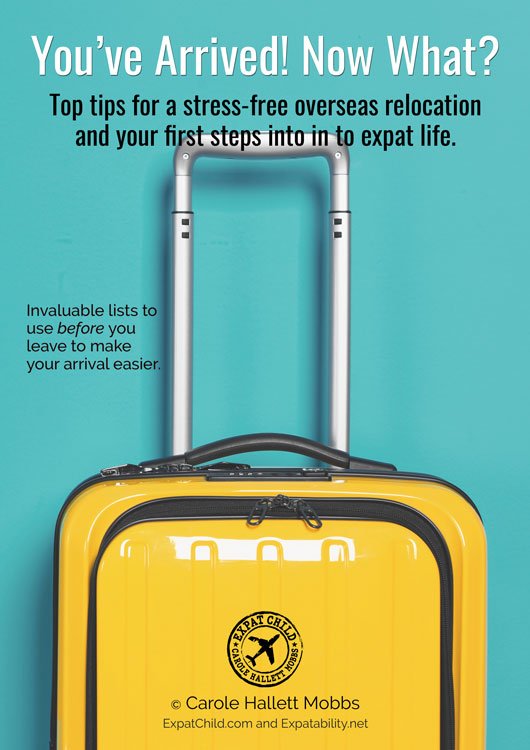What to do as soon as you arrive in a new country
As an expat arriving in a new country there are so many new things to learn and organise you may forget something extremely important; something that could actually be a matter of life or death.
How to contact the emergency services
Forget the unpacking for now. This is the very first thing you need to do when you arrive in your new home. Sit down with a cup of tea or coffee, a pen and some paper and write down the numbers for your country’s emergency services.
Give a copy to everyone in your family, leave a copy by the phone and memorise the numbers. If you haven’t already done so, teach your children how to deal with an emergency.
Many countries have a different number for the separate emergency services. For example, here in Germany it’s 110 for the police and 112 for a fire or ambulance emergency.
At this point, I intended to list the different emergency numbers for all the countries in the world, but as you can see from this apparently out of date entry in Wikipedia, it’s an almost impossible job.
However, it’s a fascinating read… did you know that there is a telephone number in South Korea you can use for reporting spies? And in Monaco there are different numbers to call an ambulance for a ‘severe’ or ‘less severe’ emergency.
I digress…
Locate your nearest hospital
Once you’re more settled, find out where the nearest hospital is. Google Maps work well for this.
Only last week I had to spend a couple of hours in Accident & Emergency with my daughter while she had her hand x-rayed after an accident at school. Her hand wasn’t broken, just “very badly damaged” – I think I possibly missed something in the translation.
Thankfully (?) she had also visited the same department the previous week with my husband because of an injury to her foot, so she knew how to get there and what to do on arrival even if I didn’t. Yes, it’s been one of those weeks!
Please can I recommend that you don’t do as I do and bury your head in the sand? Be prepared and be organised.
If you need any further motivation to sort out this information urgently, read about this terrifying incident a friend experienced very shortly after their arrival in Tokyo.
My husband had a diabetic seizure and broke his back within ten days of our arrival.
Our entire family of five had to go in an ambulance to the hospital with my husband in a coma; me speaking no Japanese, the three children in their pyjamas and not knowing anyone at all.
I was rescued by the one mum from school whom I had met. Without her I think I would have cracked up! My husband’s office manager and relocation agent were also invaluable in getting us through this crisis. A couple of mums from school also stepped in to help in the following few weeks before our nanny arrived.
This was a very traumatic time for all of us particularly our six year old who had to go and get the ambulance by herself whilst I tried to revive my husband.
Before publishing this article, I contacted her to remind me how this concluded. Thankfully, there is a happy ending:
He was and is absolutely fine now. It took a long time for his back to get back to full strength – he had physiotherapy for nine months and then rehab for a year. The upside is that he now works out more than he ever has and is super strong and fit.
As far as his diabetes is concerned – he saw a good endocrinologist in Tokyo and his blood sugar control has mostly been fine since.
This also shows that as well as having the emergency numbers to hand at all times, it’s also important to obtain contact details from every person you meet and don’t be afraid to ask for help.
I sincerely hope you never need to use this information, but it’s best to be prepared.
Grab my eBook full of tips, tricks and lists to help you hit the new ground running



